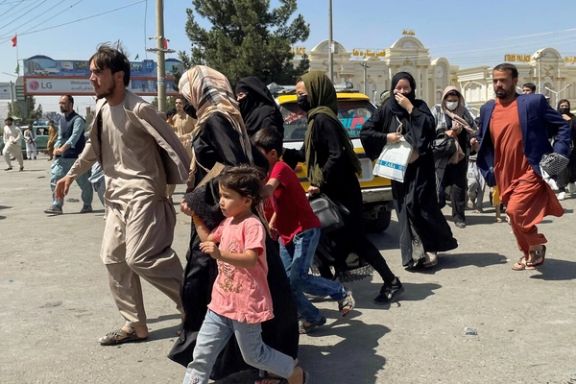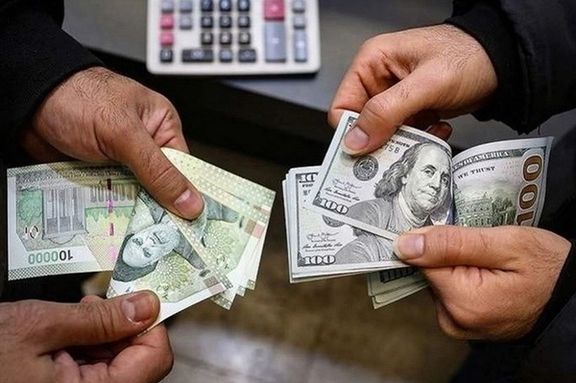Bennet slammed US President Joe Biden who has called for a “proportionate” response to the attack as the administration continues its policy of appeasement.
"President Biden has said that Israel can retaliate against Iran, but must keep the response 'proportionate'. The president also urged Israel not to attack Iran’s nuclear program,” he wrote on X.
He called for Israel to attack Iran’s nuclear program, its leadership and Iran’s main economic interests such as energy, arguing that the Islamic Republic has not only twice attacked Israel this year, but has helped hundreds of other attacks by its proxies.
“All of these would be only a fraction of what Iran did to Israel. So indeed it won’t be “proportional”, it’ll be much less,” he said, calling to bring down the Islamic Republic before it acquires nuclear weapons.
“This will take some time, but this week’s response must start this process,” he said. “If we don’t take out the nuclear program now, I don’t know we’ll ever do it. The mullah regime has acquired SQ10, which means enough high grade uranium to produce 10 nuclear bombs. The regime is racing towards producing the detonator device itself, while the world can no longer really track this,” he warned.
Earlier this year, the UN’s nuclear chief, Rafael Grossi, also warned that Iran is “weeks not months” away from a nuclear weapon while the country continues to bar at least one third of the UN’s inspectors.
“We might wake up to a test bomb exploding in Iran’s desert. At that moment the Middle East will become a nuclear nightmare. We have the justification and the ability. It’s time to act now,” Bennett added.
On the eve of October 7, when Iran-backed Hamas invaded Israel, Bennett also highlighted the wide reach of Iran’s proxies which have been armed and trained by Iran sitting across Israel’s borders and beyond.
Since October 7, Iran’s proxies in Lebanon, Syria, Iraq and Yemen have all launched attacks on Israel in allegiance with Hamas in Gaza.
“Iran has been terrorizing Israelis for over 30 years. It sent its terror-octopus tentacles —Hamas, Hezbollah, Islamic Jihad and more to surround and attack Israel. Iran’s regime funded, trained and armed these savage terrorists,” Bennett said.
Hezbollah alone, Iran’s largest proxy, has sent over 8,000 projectiles towards Israel since October 8. Since then, at least 63,000 Israelis have been displaced and tens of thousands more Lebanese displaced in Hezbollah-controlled southern Lebanon.
Israel has since launched a ground invasion in recent days into southern Lebanon, targeting Hezbollah's terror network including tunnels, weapons storage and launchers, in a bid to push back the group designated by countries including the US and Europe, as it tries to send its citizens home.
“A few days ago Iran directly shot 190 ballistic missiles to Israel, including city centers such as Tel Aviv. In April Iran lobbed some 350 projectiles towards Israel. Without Israel’s remarkable technology these missiles could have killed thousands of innocent people,” Bennett pointed out.
In April, Iran launched its first direct attack on Israel following an alleged Israeli airstrike on the Iranian consulate in Damascus which killed a senior Quds Force commander and multiple high ranking IRGC officials.
“So what would be a proportionate response? For Israel to murder, rape and burn thousands of innocent Iranians? We don’t do that,” Bennett added. “For Israel to shoot 10,000 rockets indiscriminately on Iranian cities? We don’t do that either. Therefore, Israel can do much less than what Iran’s regime did to us.”
Gabriel Noronha, the US State Department’s former Iran advisor, told Iran International: “A lot of what’s going to happen in Israel’s response is messaging to Iran on its nuclear program.
“Israel’s response to the April attack was a pinprick attack to an Iranian site, sending the message that there is the capability to hit these sites,” he said, Israel’s retaliation to the inaugural aerial bombardment in April hitting military sites including four small nuclear research facilities and the nearby Natanz uranium enrichment site.
Last week’s assassination of Hezbollah leader Hassan Nasrallah in an underground intelligence headquarters, “said Israel can hit depth, no matter how deep the bunker is,” said Noronha.
“My theory is in this case that Israel is doing a layered response, hitting a lot of Iran’s missile supply chain, warehouses, factories, oil infrastructure, maybe a refinery, but I think they will leave room to be able to escalate further. I suspect they’ll hit something like a centrifuge assembly factory.”
In June, the UN said that "while the [nuclear] Agency had not been able to verify the total stockpile of enriched uranium in the country since February 2021, it estimated that Iran maintains a total enriched uranium stockpile 30 times the amount allowable under the Plan of Action — including increased quantities of uranium enriched to 20 percent and 60 percent."
While the UN continues to urge Iran to readmit inspectors barred from the country, its nuclear chief says the chances are now unlikely.
Speaking in New York on the sidelines of the UN’s General Assembly, Rafael Grossi said: ”Unfortunately this ship has sailed.”














